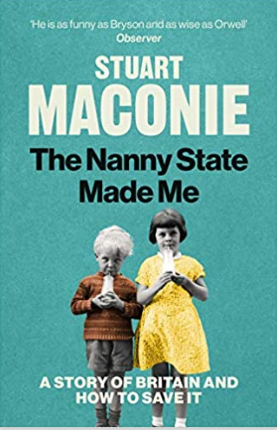
Do we all need Nanny now?


Stuart Maconie tells Britain’s Welfare State story through his own history of growing up a northern working-class boy. What was bad about publicly funded hospitals, decent working conditions, student grants, and affordable houses. Britain’s future, making an emotional case for believing in more than profit and loss and defending a just, fairer society.
Music journalist, Maconie’s The Nanny State Made Me, the politicians could afford to remember long after the virus has been dispatched and the welfare safety net has shrunk again, is part unalloyed polemic. Those who have stigmatised the state’s embrace as suffocating and disempowering are those who have never really needed it.
For forty years leaders have sought to convince us that the state was a bloated dinosaur, a scroungers’ charter an outdated and creaking handrail for losers. They also told the private sector bold, dynamic, and free was a thrusting cure-all for our national ills. He asks what is wrong with public libraries, free eye tests, and council houses?
Maconie said: “We may be coming to realise that the very people who complain about nanny state are the people who had nannies.”
Neither caring and capable businesspeople nor lazy and clock-watching public servants appear in these pages, as the first chapter decries the UK’s uniquely close embrace of outsourcing, charting the private sector involvement in probation services, prisons and other public services ended disastrously and often expensively for the taxpayer. Maconie revisits the institutions that shaped his own childhood, but which are now often attenuated, his own path form council house to university and successful media career, reflected a pre-Thatcher golden age.
Young people from working-class backgrounds are far more likely to reach university now than 40 years ago, even if the libraries that nurtured his own intellectual spark have been progressively denuded.
A GP in Shetland who tends to her patients unceasingly, and a librarian who spends every waking hour mounting activities that have turned her Midlands library into a much-loved community hub.
A visit to Norway prompts him to say that the UK failed to use proceeds of North Sea oil to safeguard his beloved public sector, the welfare system He also rages against the double standards that deplore welfare cheats but ignores the far larger sums lost to tax evasion.
He visits Margaret Scargill, daughter of former miner’s leader and Tory scourge Author, who runs a GP practice in South Yorkshire that defies the traditional model to offer everything from emergency care to physiotherapy under one roof. Dr. Scargill’s husband and practice CEO Jim Logan says the NHS is not necessarily underfunded, “just hugely mismanaged at every level”.
Thatcher’s 1979 ascent to the office and 18 years of Conservative rule, which ended the postwar consensus about how society and economy should be run, as millions of working-class voters who, over successive terms, embraced her vision of property and share ownership for the masses. None of them had nannies.
The Nanny State Made Me: A Story of Britain and How to Save It by Stuart Maconie, Ebury £20, 304 pages.
